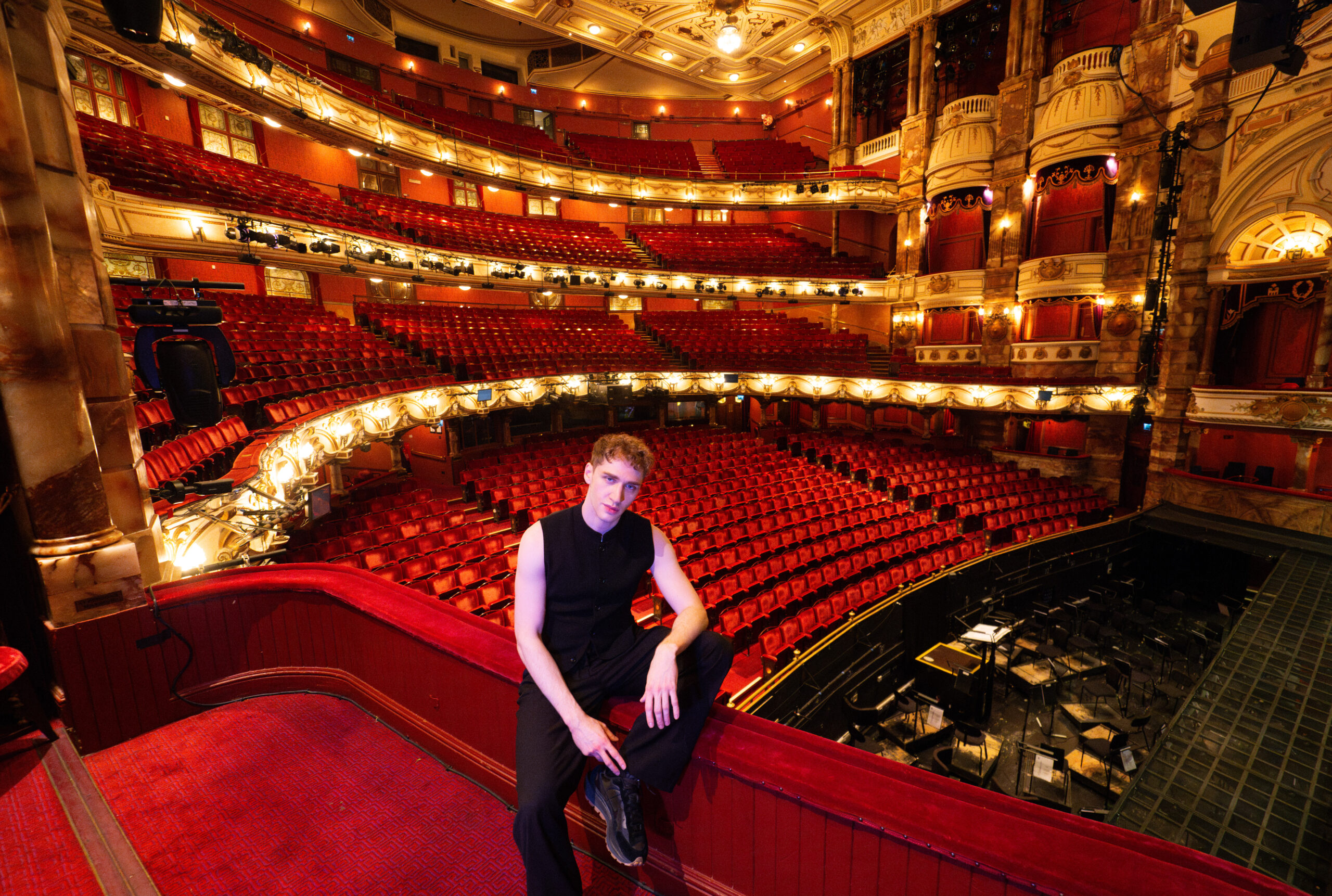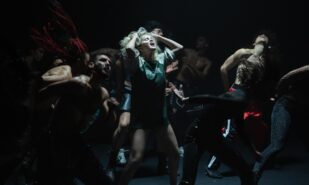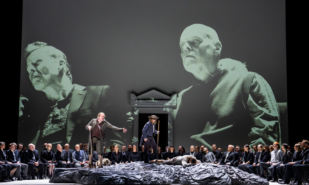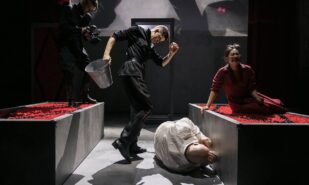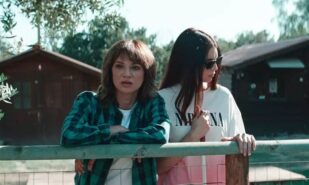Composer and pianist Kirill Richter is returning to London to perform a concert at the Coliseum. Together with his Richter Trio and accompanied by the National Symphony Orchestra of Uzbekistan (conductor: Alibek Kabdurakhmanov), Kirill will present the premiere of his orchestral fantasy “Sands of Time.” Nastya Tomskaya spoke with Kirill about London, music, and even video games.
Kirill Richter: “In fact, I’m a pure Gryffindor”.

Kirill, do you love London?
I do! A lot of things in my life are connected with this city, with this country, and its culture. It’s not necessarily a direct connection or roots, although, strangely, when I did a DNA test, 36% of my ancestry came from the island. I have some questions for my grandmother, it seems… But one way or another, I’m always in awe of England’s cultural heritage, and I feel damn good here.
Of course, my student years spent in Hertfordshire, at the British Higher School of Art and Design, left pleasant memories. I can’t wait to refresh that resource by visiting somewhere, even just dropping by the V&A.
How do you feel seeing your posters on the streets?
I don’t know, I can’t say I’m in awe of myself. I took one photo for my mom, but I’m pretty calm about it. I guess it’s just the time we live in, where you sell abstract art with your face.
Abstract?
Art without specific subjects, intangible art. No, it’s honestly nice, very nice, when friends from London send me photos saying, “Hey, it’s you.” In fact, it’s a huge job by the entire marketing team, the foundation, and all the organizers of this concert, so kudos to them.
Do you feel the team behind you?
My small team, yes, of course. It’s my close-knit circle, almost like family. My musicians are my family, and we take the stage together. And there are also people who work in the shadows, who we don’t see, but a huge part of what the audience sees is thanks to them. We’re all together, we generate ideas as a team. Of course, I feel them — I place a lot of hopes on them, and they on me. It’s always hard for one person to accomplish something, even if you can do many things. In fact, it’s a huge job by the entire team, big thank you to the Uzbekistan Art and Culture Development Foundation, and everyone who was participating in the organisation of this concert.
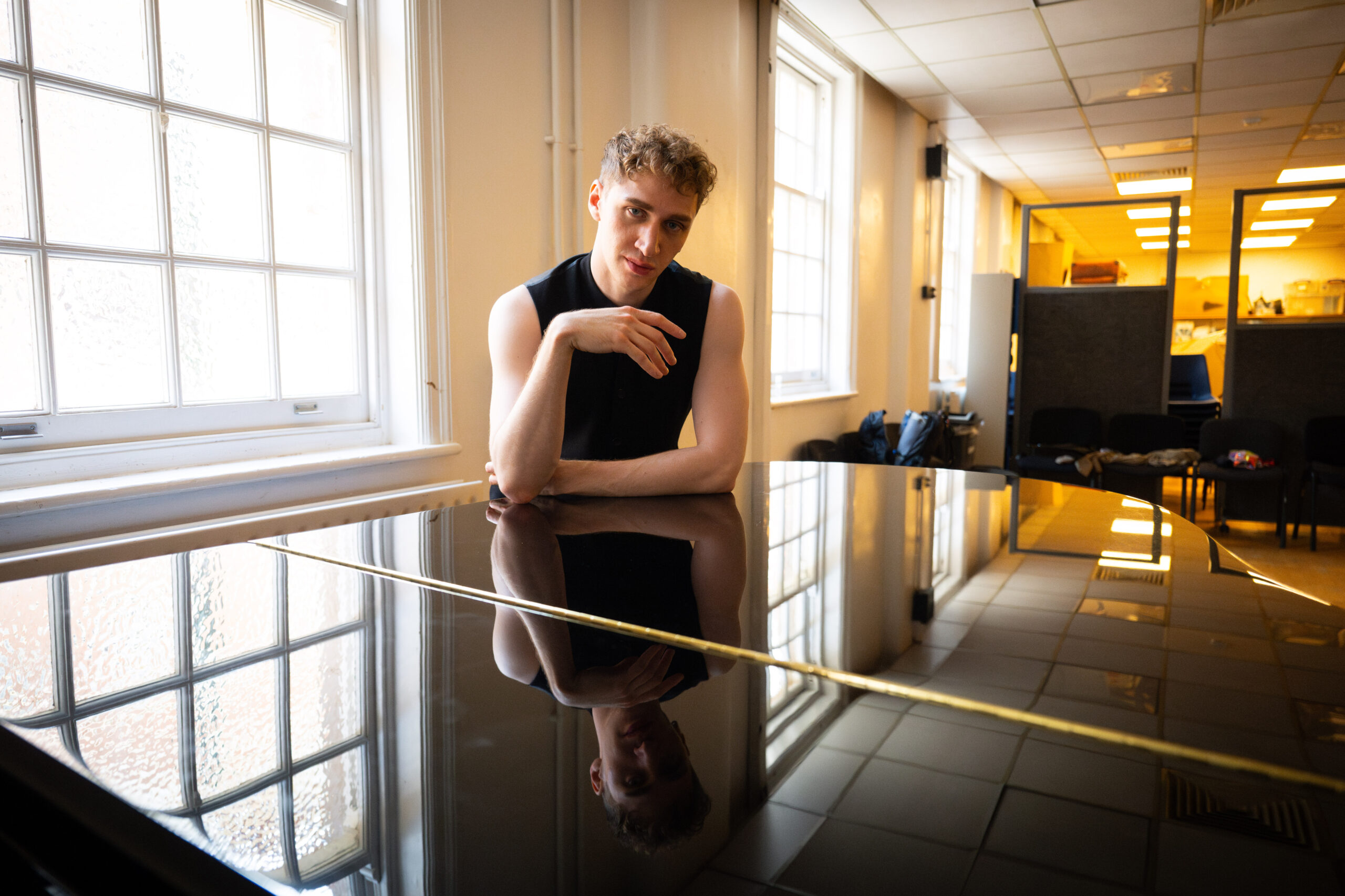
Lately, videos are going viral where a star meets their younger self. What would you say to your five-year-old self?
To my five-year-old self? I wouldn’t say anything. I had a happy childhood, even though it was poor. And the fact that I tried so many different jobs and professions before making music my career is definitely a plus in my destiny. So I wouldn’t tell him, “Sit at the piano, you need to start earlier!” Maybe I’d suggest investing a few dollars in Apple stocks or something like that. That could have made my teenage years more comfortable.
So that phase of your life when you left music and focused on design enriched you?
Of course. After my British education, I started seeing culture and personal creative projects in a completely different way. I discovered so many things, visually and conceptually. I started doing what’s often called deep research. I reflect on where I’m heading. It may sound funny, but I think any composer or artist, in the broad sense, anyone creating something, should do that. Otherwise, there’s a danger of creating derivative things.
We have to study everything that’s been created before us, develop something of our own, which will inevitably resemble something we’ve heard before. Then comes the next iteration, and the next, and so on. That’s the only way, I believe, to reach something new. Plus, much of my inspiration comes from things not related to music at all. I think it’s silly to write music inspired by music. You should be inspired by people, history, literature.
You wrote a cycle inspired by Shakespeare.
Yes, that’s the recent ballet Seven Ages, based on the famous monologue by Jaques from the comedy As You Like It. It’s a one-act ballet we created with Marco Goecke, consisting of seven small parts that mirror the segments in Shakespeare’s monologue. Starting with a toothless infant who becomes a child, grows into a teenager, falls in love for the first time, becomes a soldier and goes to war, then turns into a judge with a big belly, and finally ends up toothless again as an old man, taken by death. The soloist was the wonderful dancer Anna Jung. I’m very glad it was a woman because the original text can be interpreted in a very masculine way, as if women don’t live or die. I’ve always championed strong women. For me, supporting women has become an important part of my life. So it was crucial for the character to be female, so no one could say it’s only about “man as a person.”
How did you work on Seven Ages?
I started studying everything related to this theme, from the legend of the Fountain of Youth to Bosch’s The Garden of Earthly Delights. I became fascinated by this beautiful stained glass in Cambridge depicting the stages of life, which I studied for a long time. Then, I made the story completely timeless, without historical references — it could apply to any period. What remained were the stages themselves, from the lullaby for a newborn to the same lullaby sung by death at the end.
Does aging scare you?
I’m not exactly a young man anymore. But I’ve always thought that those infamous midlife or age-related crises would catch up with me at some point. The problem is, I’ve always been too busy for that. I just don’t understand how people find time for all these pointless sufferings. Life is so interesting! You can do so much! It’s like a video game with numerous character options — you can level up any skills you want. Maybe you didn’t become a warrior or a paladin, so you go for archery or magic instead.
Do you play games?
I used to play a lot, but not so much now, I don’t have the time. But yesterday, I played for nostalgia’s sake. It’s part of my childhood, shared with my brother, who became a game designer. We played a lot, and it was a way to communicate with him. Even now, sometimes we play together on PlayStation 5.
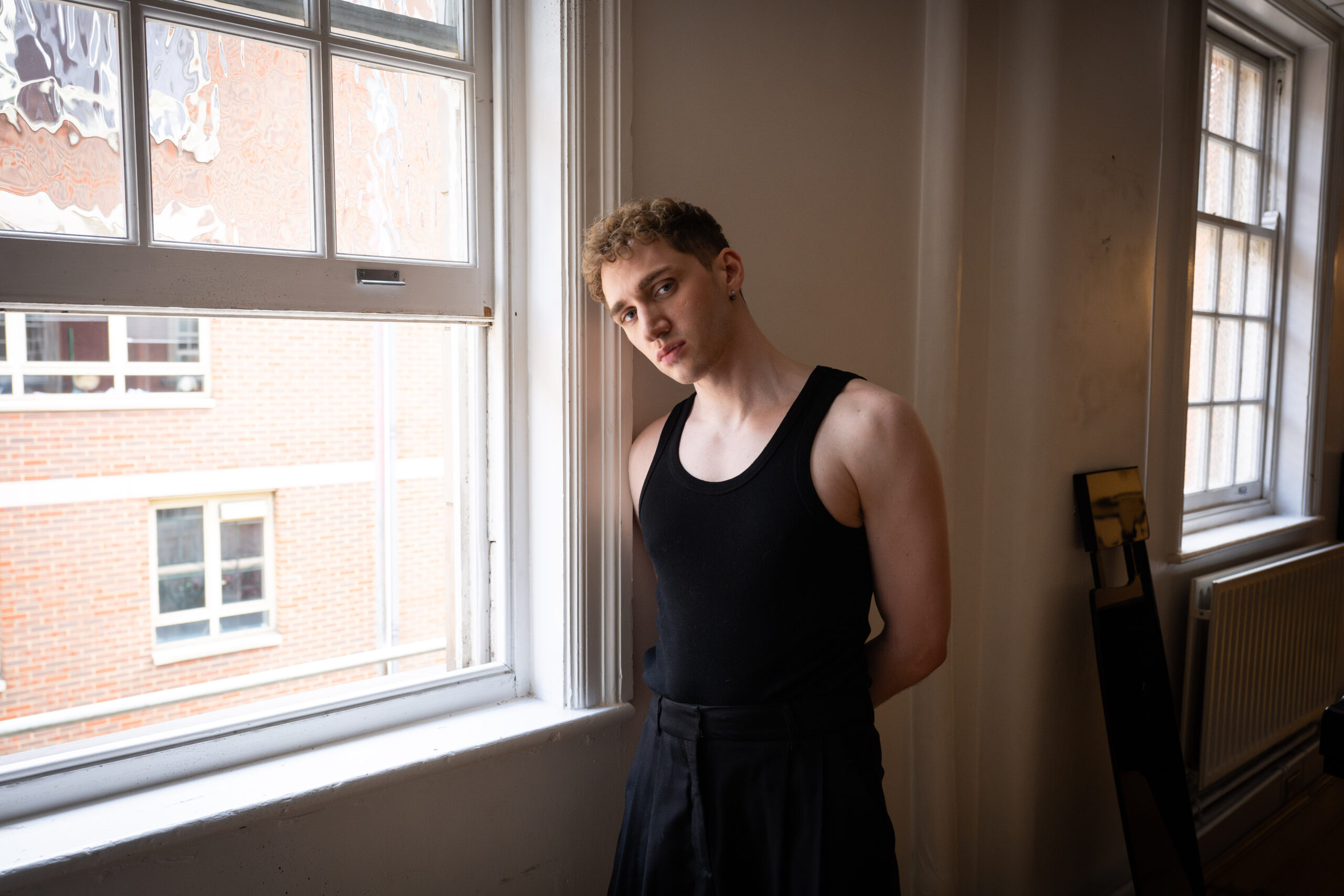
What game left an impression on you?
One of the masterpieces is The Last of Us. The music there is amazing, practically cinematic! I love that games have become so interactive, like movies. I also played Hogwarts Legacy — it was fun flying around on a broom as a weird Gryffindor who somehow knew the Avada Kedavra curse.
Which house did you associate with when reading the books?
When I was younger, I thought I was a Slytherin. I felt sympathy for both Gryffindor and Slytherin; I think their contrast attracted me. But Gryffindors are dearer to me now. In fact, I’m a pure Gryffindor. My trio and I used to joke a lot — with Alena Zinovieva and August Krepack — that we perfectly fit the Gryffindor trio of Harry, Ron, and Hermione. Alena was like Hermione, the most level-headed.
Is August Ron?
I’m not sure he would agree, but he has the bravest and strongest energy. I, of course, am forced to be a bit like Harry, but that’s not really my story.
How do you compose music? Do you use a computer, or do you prefer paper?
It depends. Nowadays, I don’t use paper at all. I use a tablet, which saves a lot of time. The speed at which I compose makes using paper impractical. Only during the concept phase, when I create a mood board, do I stick small handwritten notes next to the instrument about registers, orchestration, and key melodies. But most of the time, I go to the instrument, hit record, and start improvising for hours, days. Then, I sift through the material for the good parts. It’s a tedious process that few people can endure.
Your music has been played at major events, like sports championships.
Yes, and even at the Olympics. It’s surreal because the music no longer feels connected to you as a person. It’s strange to think that so many people know and listen to your music, but they don’t know you. I think that’s a good thing.
Do you feel like the instrument becomes an extension of you, or are you two separate entities?
I don’t think about it that way. It’s just an instrument. If we keep with the Harry Potter analogy, it’s like a wand. It has its own qualities, but it’s still just a wand. Unlike violinists who grow up with one instrument, we pianists are more like sailors. We arrive at a port, see an instrument, and play. If the piano is in good condition, they’re all pretty much the same.
When you step on stage, do you switch from composer to performer?
I do switch modes, probably when I take the first step onto the stage. By the way, the bigger the audience, the easier it is to play. With smaller audiences, you feel each person as an individual, which isn’t great for me. I prefer to experience the audience as a force, like an ocean. You send out a wave, and if they respond, everything’s fine. Sometimes the audience is cold and unresponsive, and you have to melt that with your energy.
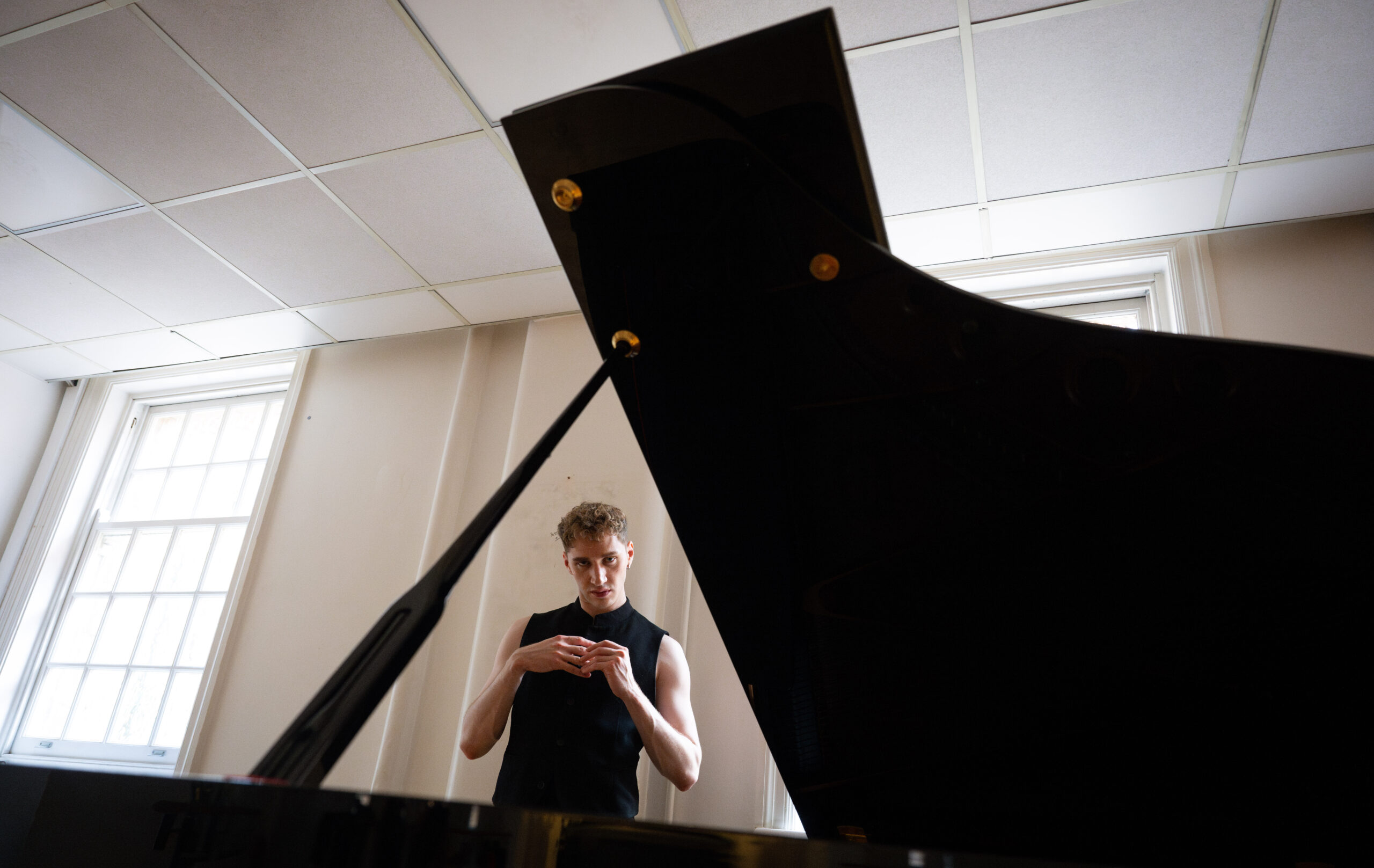
What is musical snobbery from a professional’s point of view?
There was a time when I was guilty of it myself. I divide snobbery into types. The worst is when it says, “You don’t belong here, you don’t deserve to be on stage.” That kind of snobbery is despicable. But there’s a form of snobbery that helps you separate the wheat from the chaff, and it’s crucial for critical self-assessment. If you realize that, despite a piece’s success, it’s actually quite simple, that’s not necessarily bad, but you should be cautious, or everything might slide into mediocrity.
What are you listening to right now? Do you listen to anything before concerts?
I don’t listen to anything before concerts — better to recall what was played during the last rehearsal. But I listen to a lot of electronic and vocal music.
And what about old rock?
Not really my thing. My father listened to Led Zeppelin, Metallica, and Scorpions, but it’s not my music. However, I still love medieval branles, which we danced to during historical reenactments when I was a kid.
You’re a reenactor?
Yes, I have a history with reenactment! It’s an important part of my life that gave my brother and me an understanding of the limitless possibilities of imagination. You can truly create a world and bring it to life!

